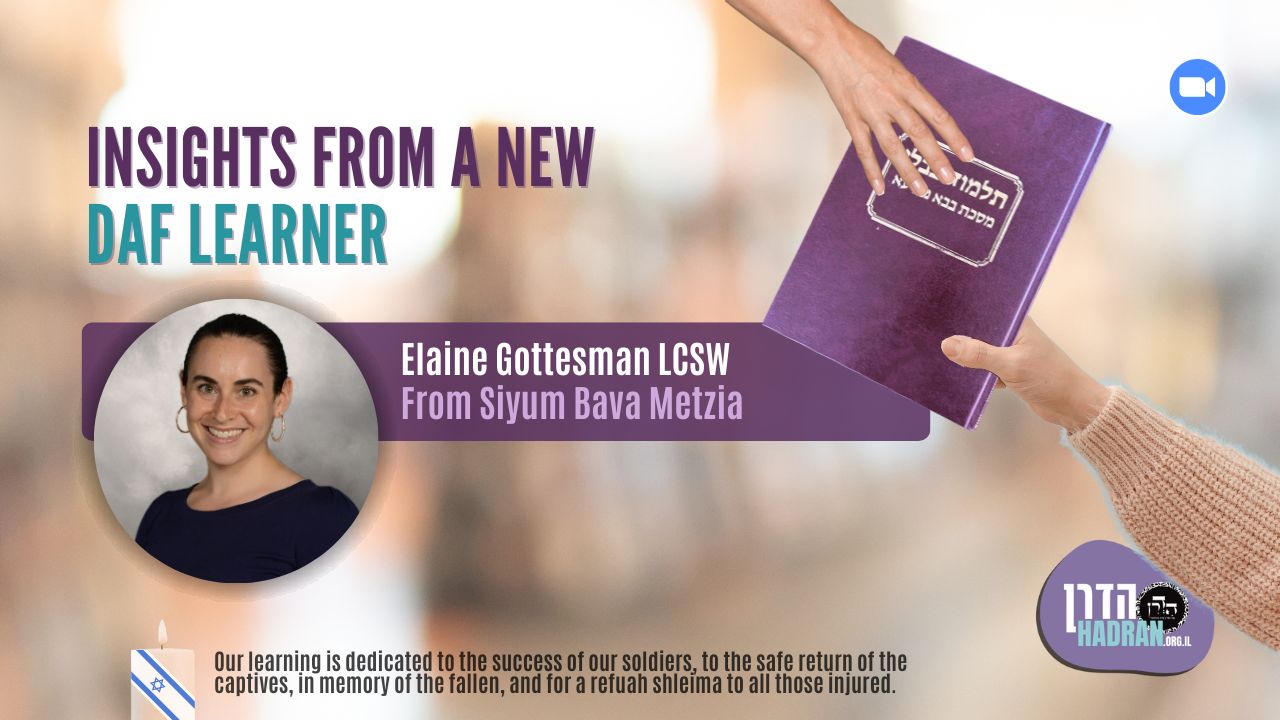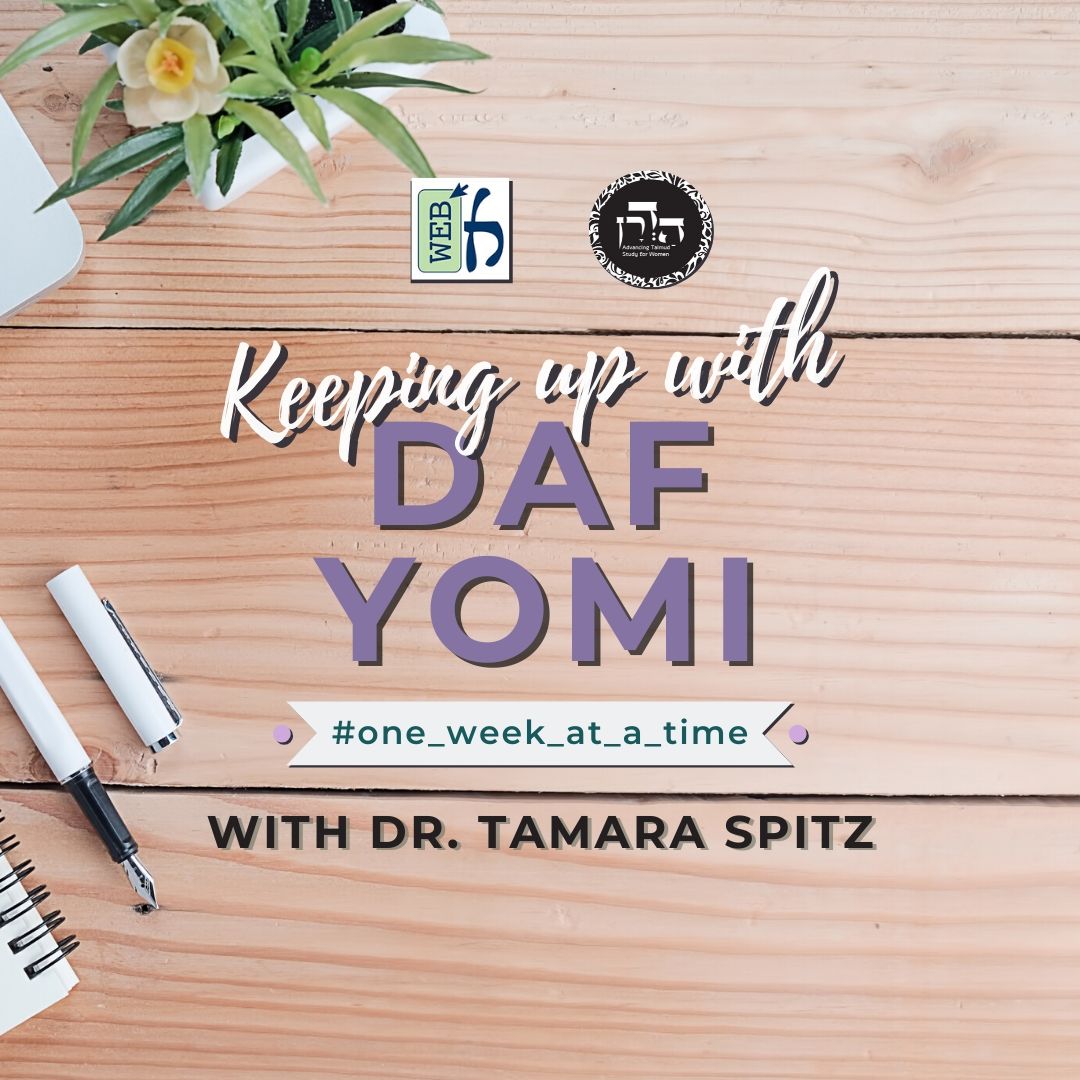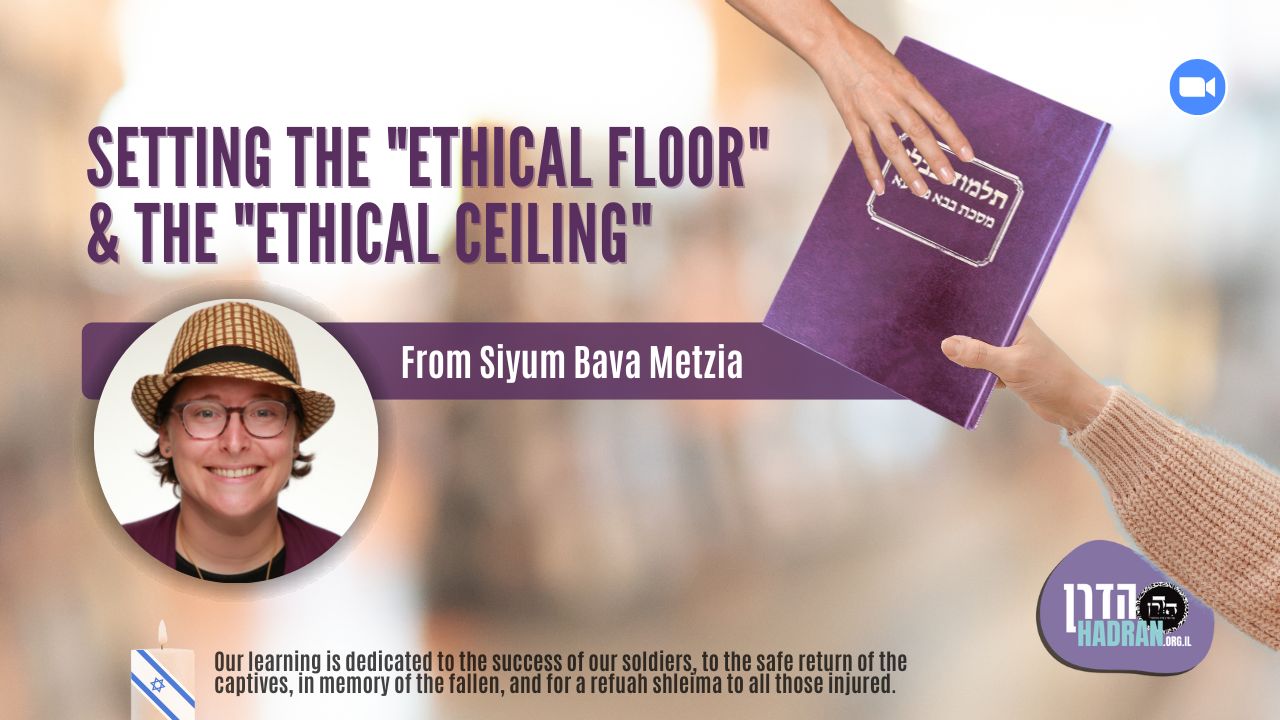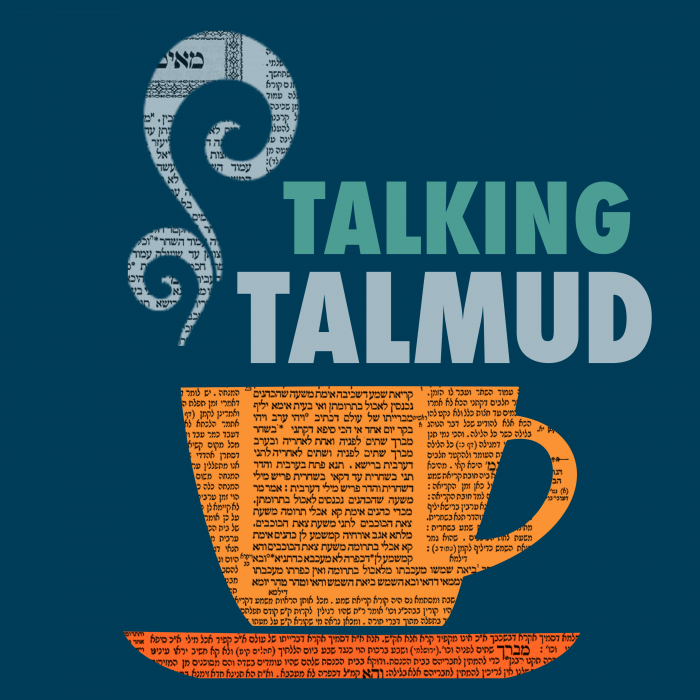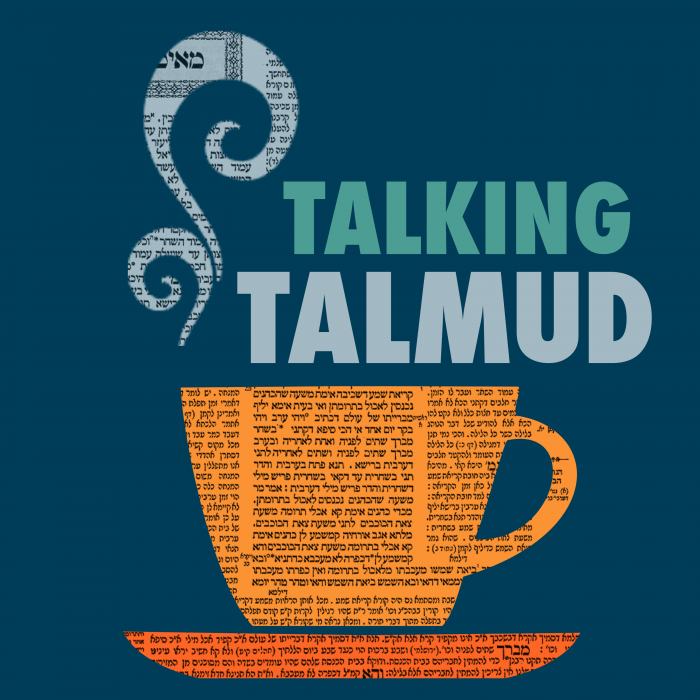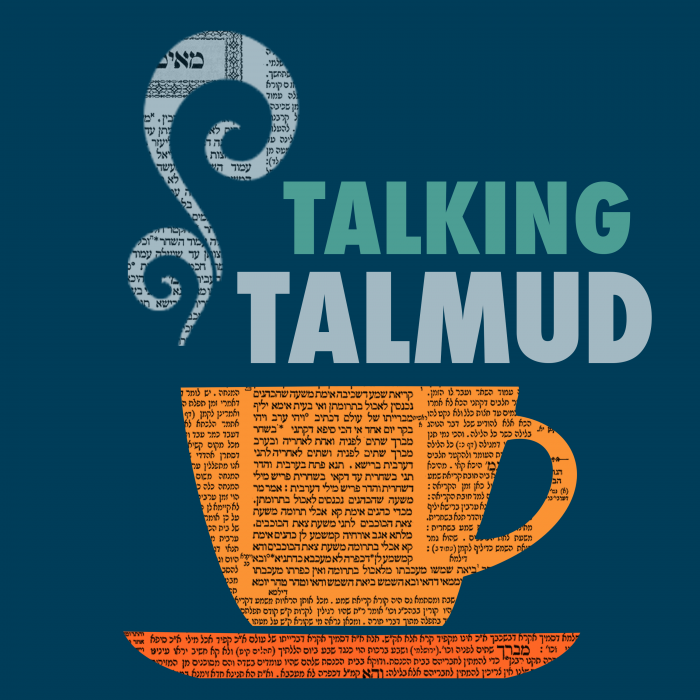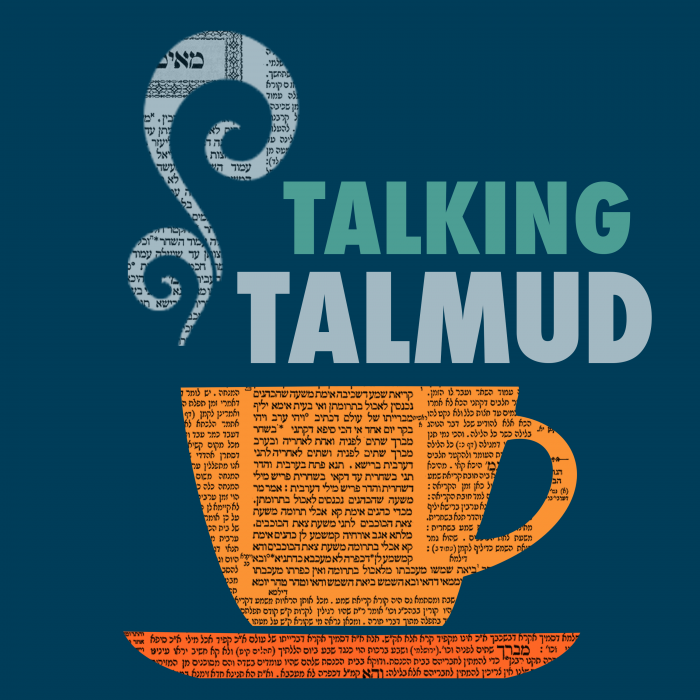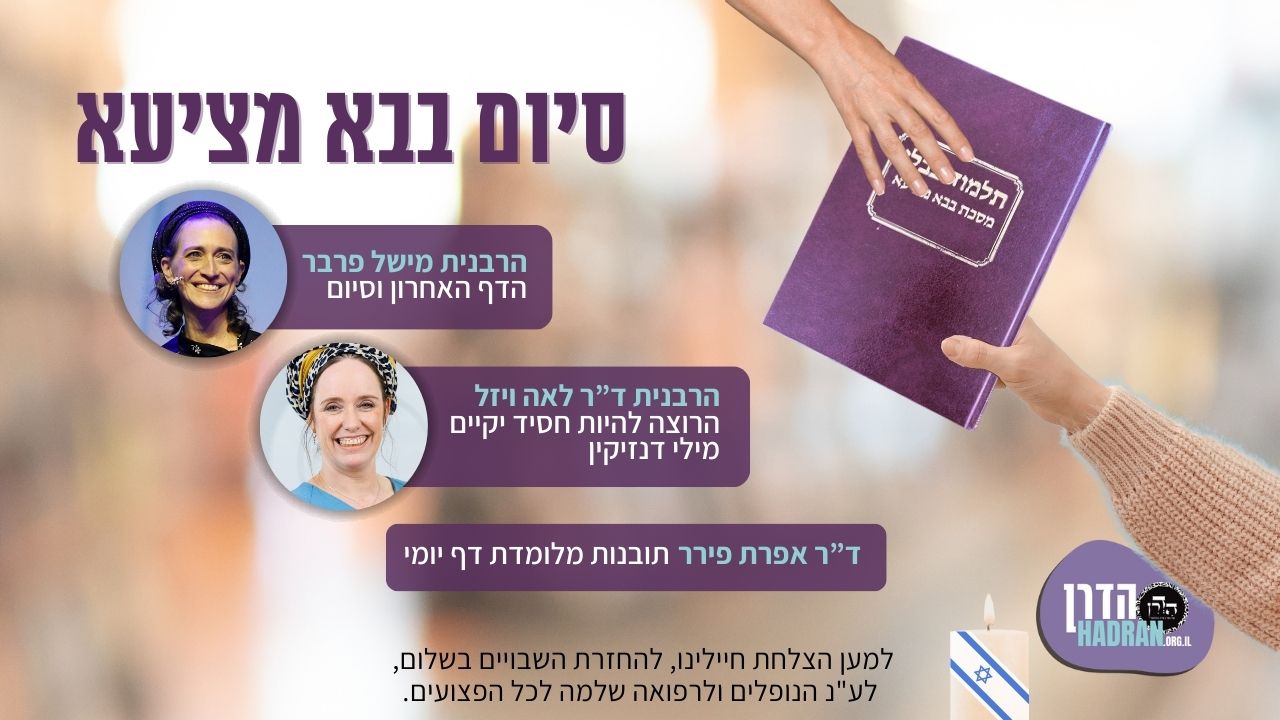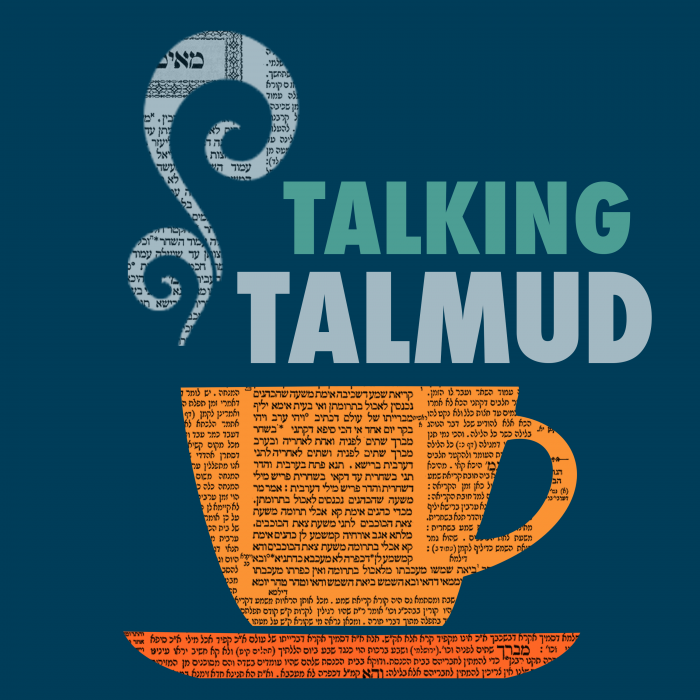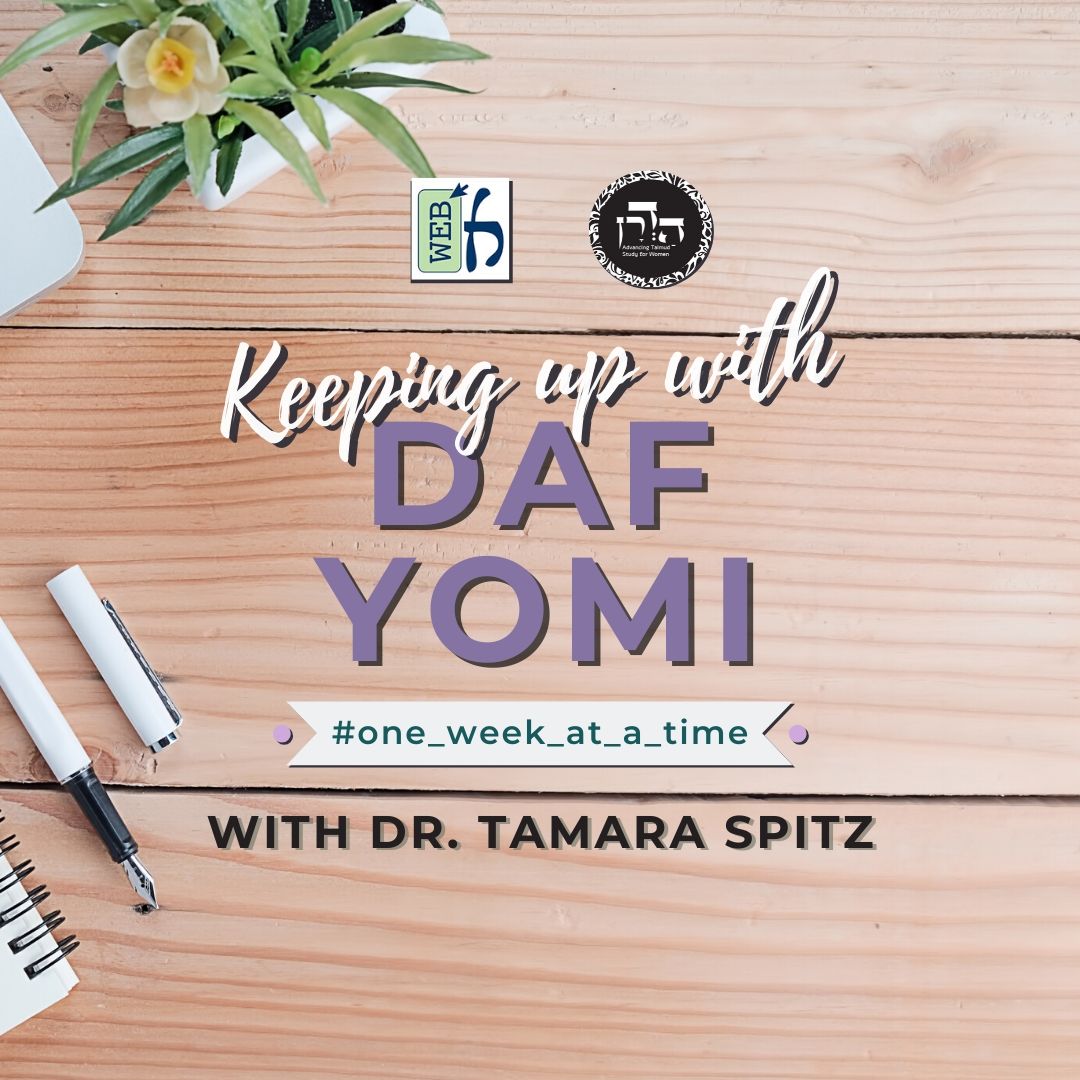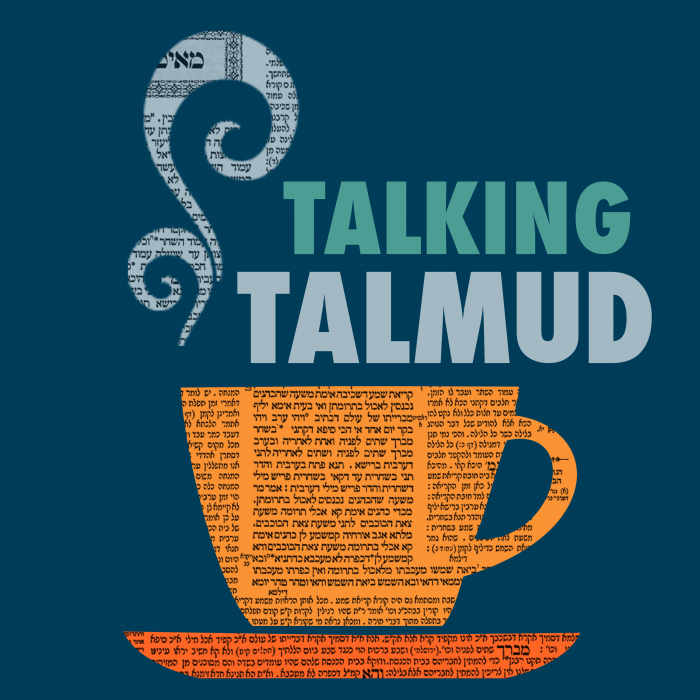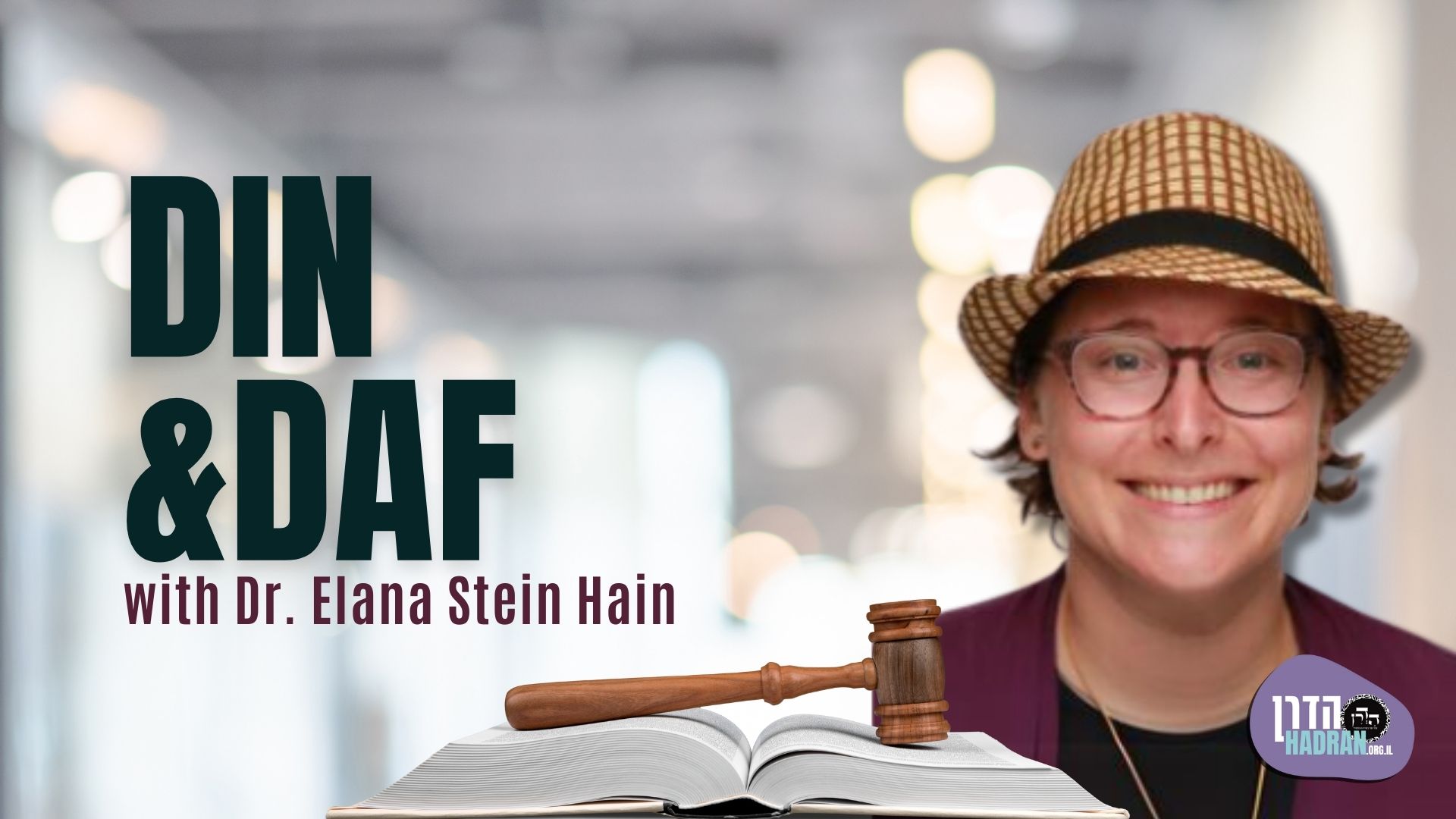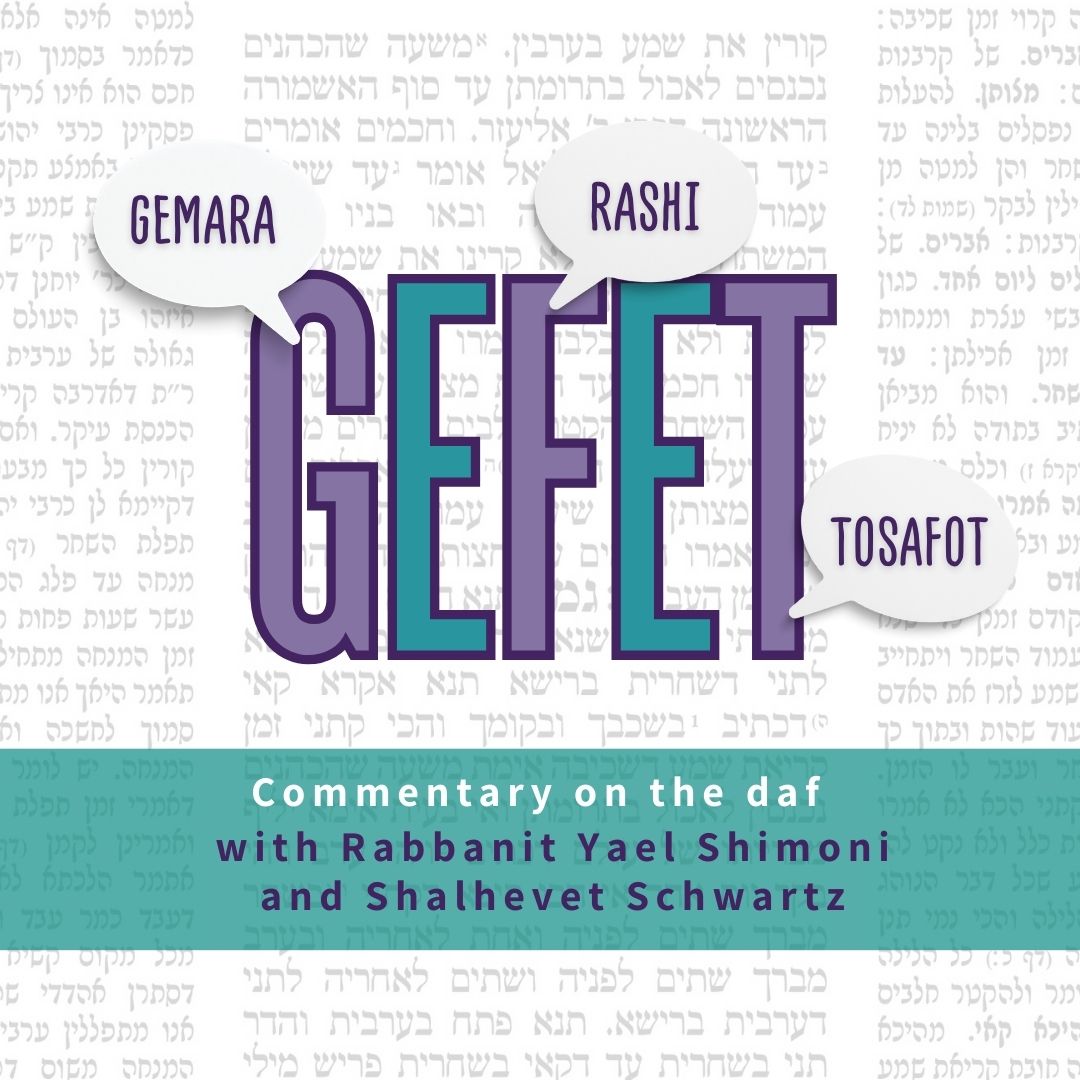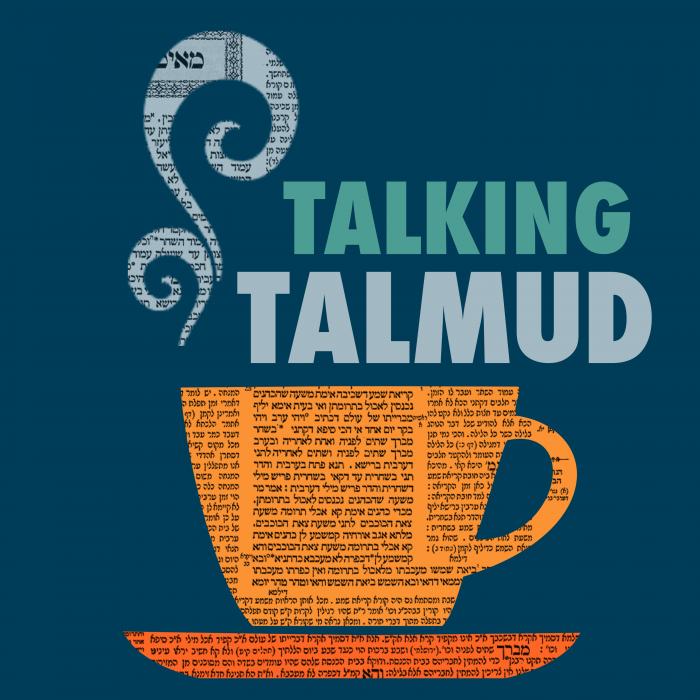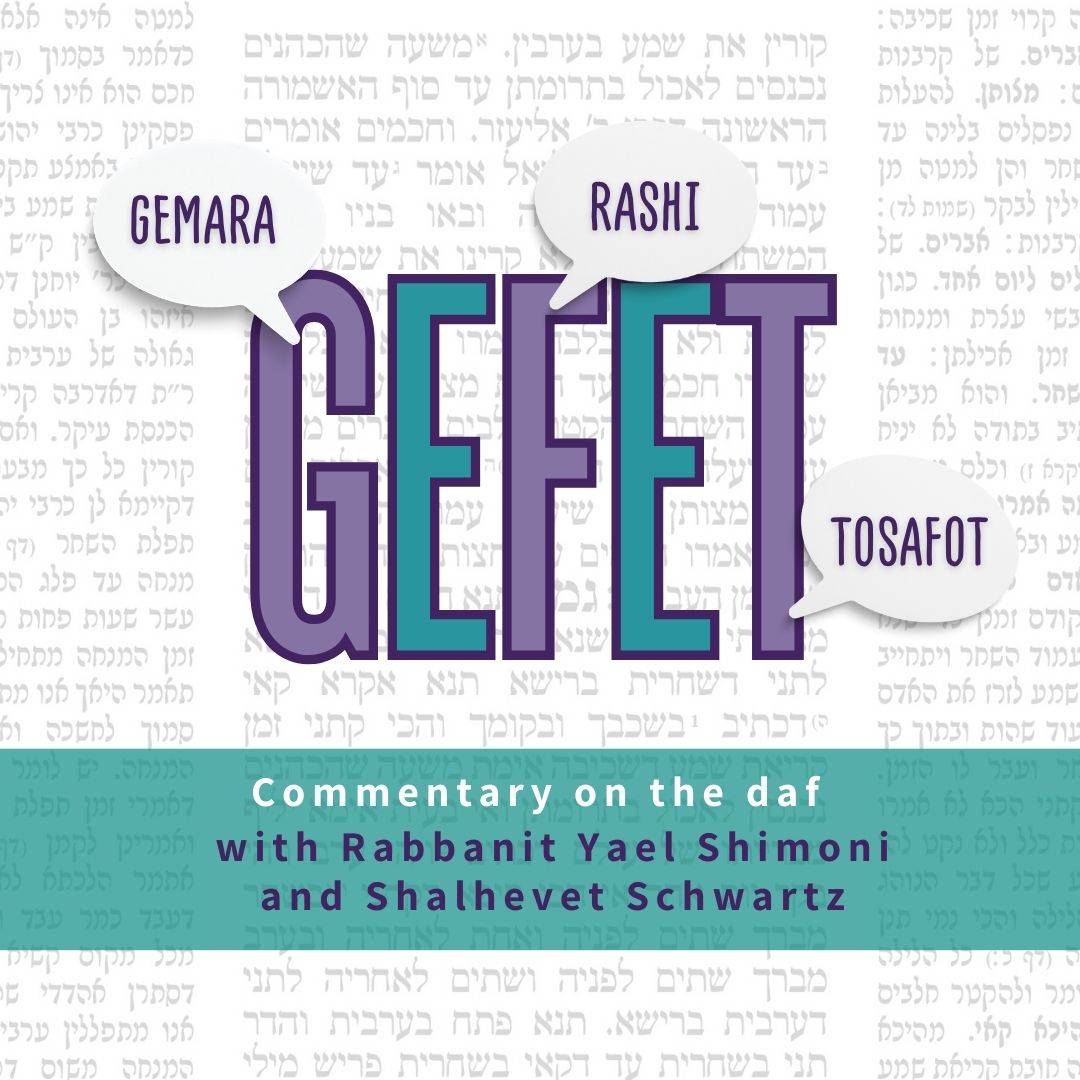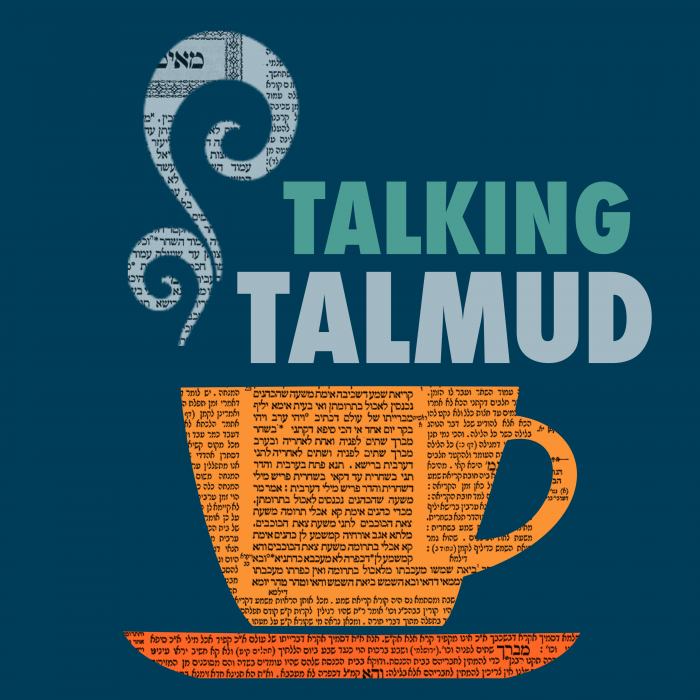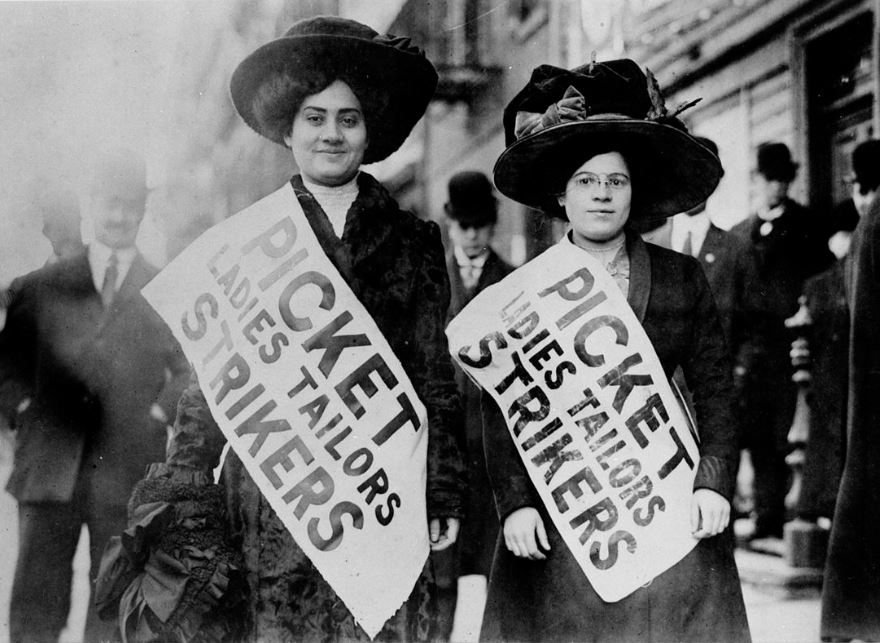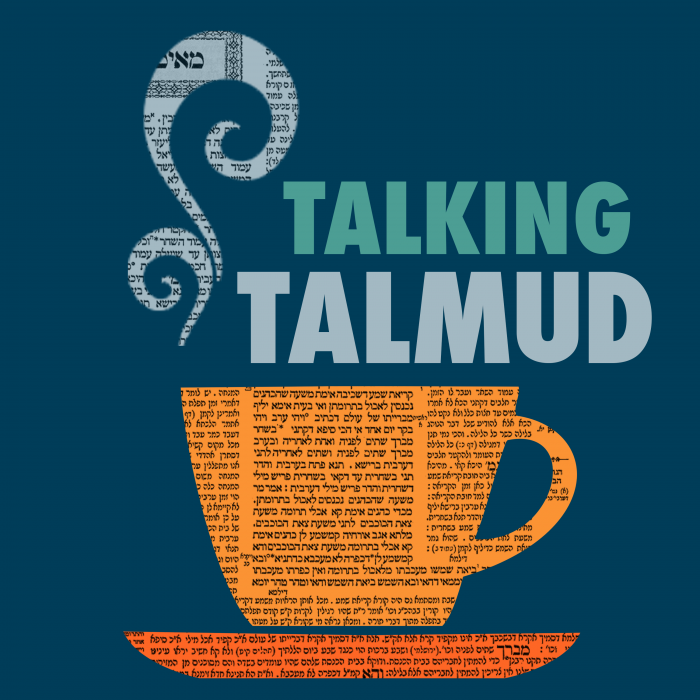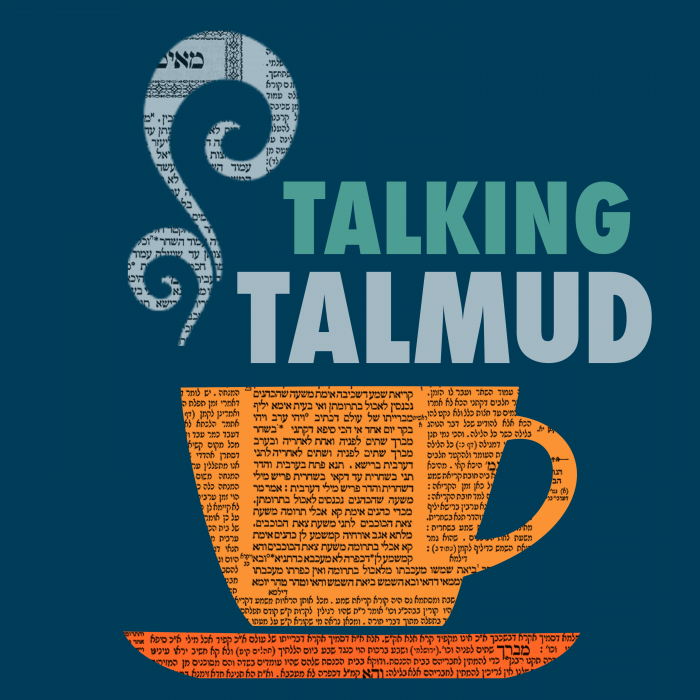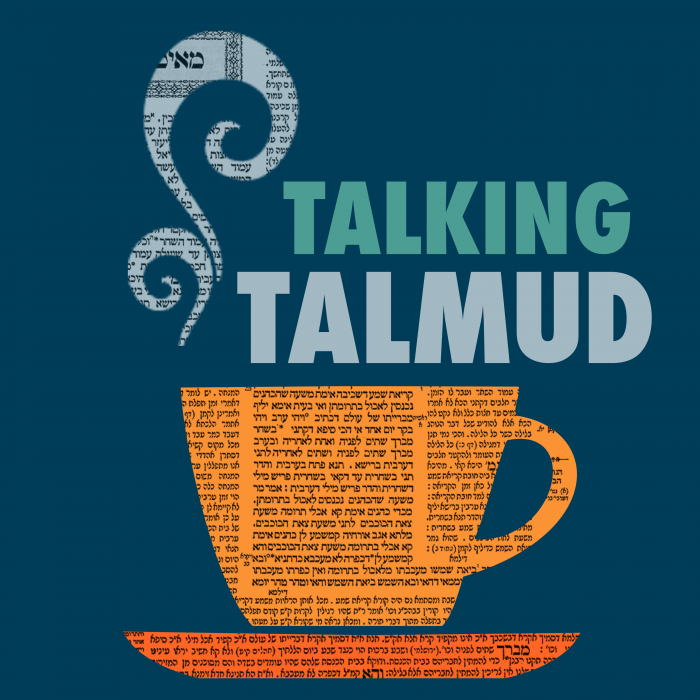The Gemara continues to compare the law in our Mishna to tannatic opinions in other cases of disputed money that seem to reach different halakhic conclusions. Distinctions are made between the various cases to prove that our Mishna could match the opinions of the tannaim in those sources as the details of our case are different and would therefore lead to a different ruling. Rabbi Chiya rules that if the defendant denies a claim but witnesses testify that the defendant owes half the contested amount, the defendant must pay half and take an oath on the other half to be exempt from payment. He derives this from kal v’chomer from modeh bemiktzat (one who admits to half a claim, where the law is that he/she takes an oath on the other half to be exempt). The Gemara brings our mishna as proof for this law of Rabbi Chiya and then explains why there was a need for a kal v’chomer. As Rabbi Chiya did not explain the kal v’chomer from which he derived this law, the Gemara attempts to determine how it was derived. However, the first suggestion is that the lenient part of the kal v’chomer argument is a case of confession, but that is rejected as it is actually more stringent in one way than a case of witnesses. There are four attempts to explain why a confession is more stringent, but the first three are rejected. The final attempt to find a stringency in confession over witnesses is that other witnesses cannot undo it, and that answer is accepted. The second suggestion, one witness, is rejected as the case where one witness can obligate the claimant to take an oath is referring to an oath on the part the witness testified about, whereas the two witnesses in our case are obligating an oath on the part that they did not testify about. Therefore, one cannot learn from one to the other.
Bava Metzia
Masechet Bava Metzia is sponsored by Rabbi Art Gould in memory of his beloved bride of 50 years, Carol Joy Robinson, Karina Gola bat Huddah v’Yehuda Tzvi.
רבות בנות עשו חיל ואת עלית על־כלנה
This week’s learning is sponsored for the merit and safety of Haymanut (Emuna) Kasau, who was 9 years old when she disappeared from her home in Tzfat two years ago, on the 16th of Adar, 5784 (February 25, 2024), and whose whereabouts remain unknown.
This week’s learning is dedicated of the safety of our nation, the soldiers and citizens of Israel, and for the liberation of the Iranian people. May we soon see the realization of “ליהודים היתה אורה ושמחה וששון ויקר”.
Want to dedicate learning? Get started here:


Today’s daily daf tools:
Bava Metzia
Masechet Bava Metzia is sponsored by Rabbi Art Gould in memory of his beloved bride of 50 years, Carol Joy Robinson, Karina Gola bat Huddah v’Yehuda Tzvi.
רבות בנות עשו חיל ואת עלית על־כלנה
This week’s learning is sponsored for the merit and safety of Haymanut (Emuna) Kasau, who was 9 years old when she disappeared from her home in Tzfat two years ago, on the 16th of Adar, 5784 (February 25, 2024), and whose whereabouts remain unknown.
This week’s learning is dedicated of the safety of our nation, the soldiers and citizens of Israel, and for the liberation of the Iranian people. May we soon see the realization of “ליהודים היתה אורה ושמחה וששון ויקר”.
Today’s daily daf tools:
Delve Deeper
Broaden your understanding of the topics on this daf with classes and podcasts from top women Talmud scholars.
New to Talmud?
Check out our resources designed to help you navigate a page of Talmud – and study at the pace, level and style that fits you.
The Hadran Women’s Tapestry
Meet the diverse women learning Gemara at Hadran and hear their stories.
Bava Metzia 3
וְאִיכָּא לְמֵימַר כּוּלָּהּ לְמָר, וְאִיכָּא לְמֵימַר כּוּלָּהּ לְמָר, אָמַר סוֹמְכוֹס: מָמוֹן הַמּוּטָּל בְּסָפֵק חוֹלְקִין בְּלֹא שְׁבוּעָה, הָכָא, דְּלֵיכָּא דְּרָרָא דְמָמוֹנָא, דְּאִיכָּא לְמֵימַר דְּתַרְוַיְיהוּ הִיא, לֹא כׇּל שֶׁכֵּן!
and there is room to say that it belongs entirely to one of them, and there is also room to say that it belongs entirely to the other one, and nevertheless Sumakhos says that since it is property of uncertain ownership they divide it without taking an oath, then here, where the litigants have no financial association with the item, as there is room to say that it belongs to both of them, all the more so is it not clear that they should divide it without taking an oath?
אֲפִילּוּ תֵּימָא סוֹמְכוֹס, שְׁבוּעָה זוֹ מִדְּרַבָּנַן הִיא כִּדְרַבִּי יוֹחָנָן. דְּאָמַר רַבִּי יוֹחָנָן: שְׁבוּעָה זוֹ תַּקָּנַת חֲכָמִים הִיא, שֶׁלֹּא יְהֵא כׇּל אֶחָד וְאֶחָד הוֹלֵךְ וְתוֹקֵף בְּטַלִּיתוֹ שֶׁל חֲבֵירוֹ וְאוֹמֵר: שֶׁלִּי הוּא.
The Gemara answers: You may even say that the mishna is in accordance with the opinion of Sumakhos: This oath is instituted by rabbinic law in accordance with the statement of Rabbi Yoḥanan. As Rabbi Yoḥanan says: This oath, administered in the case of two people holding a garment, is an ordinance instituted by the Sages so that everyone will not go and seize the garment of another and say: It is mine.
לֵימָא מַתְנִיתִין דְּלָא כְּרַבִּי יוֹסֵי, דְּאִי כְּרַבִּי יוֹסֵי – הָא אָמַר: אִם כֵּן מָה הִפְסִיד רַמַּאי? אֶלָּא הַכֹּל יְהֵא מוּנָּח עַד שֶׁיָּבֹא אֵלִיָּהוּ.
§ The Gemara suggests: Let us say that the mishna is not in accordance with the opinion of Rabbi Yosei. As, if you say that the ruling is in accordance with the opinion of Rabbi Yosei, doesn’t he say that a case cannot be decided in a manner in which there is no deterrent for one taking a false claim to court (37a)? He says this with regard to a case where two people deposited money with the same person. One deposited one hundred dinars and one deposited two hundred, and the bailee forgot which of them deposited the larger sum. Subsequently, each claimed ownership of the larger sum and was prepared to take an oath to that effect. The Rabbis say that each should receive the smaller sum and the remainder should be held until Elijah the prophet prophetically resolves the uncertainty. Rabbi Yosei says: If so, what did the swindler lose? Rather, the entire deposit will be placed in a safe place until Elijah comes.
אֶלָּא מַאי רַבָּנַן – כֵּיוָן דְּאָמְרִי רַבָּנַן: ״הַשְּׁאָר יְהֵא מוּנָּח עַד שֶׁיָּבֹא אֵלִיָּהוּ״, הָא נָמֵי כִּשְׁאָר דָּמֵי, דִּסְפֵיקָא הִיא!
The Gemara counters: Rather, what is suggested? Is it suggested that the mishna is in accordance with the opinion of the Rabbis, who disagree with Rabbi Yosei? Since the Rabbis say there: The remainder is placed in a safe place until Elijah comes, this case of the mishna concerning the garment is also comparable to the remainder in the case of the deposit, as it is uncertain to whom the entire garment belongs. It should therefore be placed in a safe place until the matter is resolved.
הַאי מַאי? אִי אָמְרַתְּ בִּשְׁלָמָא רַבָּנַן, הָתָם דְּוַדַּאי הַאי מָנֶה דְּחַד מִינַּיְיהוּ הוּא אָמְרִי רַבָּנַן: יְהֵא מוּנָּח עַד שֶׁיָּבֹא אֵלִיָּהוּ. הָכָא דְּאִיכָּא לְמֵימַר דְּתַרְוַיְיהוּ הוּא, אָמְרִי רַבָּנַן: פָּלְגִי בִּשְׁבוּעָה.
The Gemara answers: What is this comparison? Granted, if you say that the mishna is in accordance with the opinion of the Rabbis there, in the case of the depositors, where these one hundred dinars certainly belong to only one of them and the Rabbis say that it is placed in a safe place until Elijah comes, here, in the case of this mishna, where there is room to say that it belongs to both of them, the Rabbis say that they divide it with the proviso that they take an oath.
אֶלָּא אִי אָמְרַתְּ רַבִּי יוֹסֵי הִיא, הַשְׁתָּא וּמָה הָתָם דִּבְוַדַּאי אִיכָּא מָנֶה לְמָר וְאִיכָּא מָנֶה לְמָר, אֲמַר רַבִּי יוֹסֵי יְהֵא מוּנָּח עַד שֶׁיָּבֹא אֵלִיָּהוּ, הָכָא דְּאִיכָּא לְמֵימַר דְּחַד מִינַּיְיהוּ הוּא – לֹא כׇּל שֶׁכֵּן!
But if you say that the mishna is in accordance with the opinion of Rabbi Yosei, there is a difficulty. Now consider, if there, in a case where it is certain that there are one hundred dinars that belong to one of the litigants and there are one hundred dinars that belong to the other one, nevertheless, Rabbi Yosei says that the entire sum is placed in a safe place until Elijah comes, here, where there is room to say that it all belongs to only one of them, all the more so is it not clear that it should be placed in a safe place until Elijah comes, as one of the claims may be entirely fraudulent?
אֲפִילּוּ תֵּימָא רַבִּי יוֹסֵי, הָתָם – וַדַּאי אִיכָּא רַמַּאי, הָכָא מִי יֵימַר דְּאִיכָּא רַמַּאי? אֵימָא תַּרְוַיְיהוּ בַּהֲדֵי הֲדָדֵי אַגְבְּהוּהָ.
The Gemara rejects this suggestion: You may even say that the mishna is in accordance with the opinion of Rabbi Yosei: There, in the case of the deposit, there is certainly a swindler between the two depositors. By contrast, here, in the case of the mishna, who is to say that there is a swindler? Say that both of them lifted the garment at the same time, and therefore there is no reason to penalize them by placing the garment in a safe place.
אִי נָמֵי: הָתָם קָנֵיס לֵיהּ רַבִּי יוֹסֵי לְרַמַּאי כִּי הֵיכִי דְּלוֹדֵי, הָכָא מַאי פְּסֵידָא אִית לֵיהּ דְּלוֹדֵי.
Alternatively, there is room to distinguish between the cases: There, Rabbi Yosei penalizes the swindler by confiscating his deposit so that he will admit that he lied in order to receive his original deposit of one hundred dinars from the bailee. Here, in the case of the garment, what loss would a swindler incur that would prompt him to admit that he is lying? If the item is placed in a safe place, he loses nothing.
תִּינַח מְצִיאָה, מִקָּח וּמִמְכָּר מַאי אִיכָּא לְמֵימַר? אֶלָּא מְחַוַּורְתָּא כִּדְשַׁנִּין מֵעִיקָּרָא.
The Gemara rejects this alternative explanation: This distinction works out well in the case of a found item where he did not pay anything for it. Consequently, he has no incentive to admit that he lied. But in a case of buying and selling, what is there to say? Both parties paid for the item and prefer to receive the item. Rather, the distinction is clearly as we explained initially. The difference between the cases is that in the mishna, there is no certainty that one of them is lying.
בֵּין לְרַבָּנַן וּבֵין לְרַבִּי יוֹסֵי, הָתָם גַּבֵּי חֶנְוָנִי עַל פִּנְקָסוֹ דְּקָתָנֵי: זֶה נִשְׁבָּע וְנוֹטֵל, וְזֶה נִשְׁבָּע וְנוֹטֵל.
The Gemara asks: Both according to the opinion of the Rabbis and according to the opinion of Rabbi Yosei, there, with regard to the case of a storekeeper relying on his ledger, it is unclear why the money is not held until the matter is clarified. This is referring to a case where an employer tells a storekeeper to give food to his laborer in lieu of his salary, and later the storekeeper claims that he gave it to him but the laborer claims that he did not receive it. Both parties therefore claim payment from the employer. As the mishna (Shevuot 45a) teaches that this one, the storekeeper, takes an oath that he gave the food to the laborer and receives payment from the employer, and that one, the laborer, takes an oath that he was not given the food and takes his salary from the employer.
מַאי שְׁנָא דְּלָא אָמְרִינַן נַפְּקֵיהּ לְמָמוֹנָא מִבַּעַל הַבַּיִת, וִיהֵא מוּנָּח עַד שֶׁיָּבֹא אֵלִיָּהוּ, דְּהָא בְּוַדַּאי אִיכָּא רַמַּאי!
What is different in that case, that we do not say: Appropriate the money from the employer, and it is placed in a safe place until Elijah comes? Apparently, we should say this because there is certainly a swindler among the litigants, since it is impossible that both the storekeeper and the laborer are telling the truth.
אָמְרִי הָתָם, הַיְינוּ טַעְמָא דְּאָמַר לֵיהּ חֶנְוָנִי לְבַעַל הַבַּיִת: אֲנָא שְׁלִיחוּתָא דִידָךְ קָא עָבְדִינָא, מַאי אִית לִי גַּבֵּי שָׂכִיר, אַף עַל גַּב דְּקָא מִשְׁתְּבַע לִי, לָא מְהֵימַן לִי בִּשְׁבוּעָה, אַתְּ הֶאֱמַנְתֵּיהּ, דְּלָא אֲמַרְתְּ לִי בְּסָהֲדֵי הַב לֵיהּ.
The Sages say in response: There, this is the reason that the money is not set aside: Because the storekeeper can say to the employer: I carried out your agency to give the food to the laborer, and I have dealings only with you. What business do I have with the hired laborer? Even if he takes an oath to me that he did not receive the food, he is not trustworthy to me by virtue of his oath. You are the one who trusted him, as you did not say to me: Give him the food in the presence of witnesses. Therefore, you are obligated to pay me. If you have a grievance, settle it with your employee.
וְשָׂכִיר נָמֵי אָמַר לֵיהּ לְבַעַל הַבַּיִת: אֲנָא עֲבַדִי עֲבִידְתָּא גַּבָּךְ, מַאי אִית לִי גַּבֵּי חֶנְוָנִי, אַף עַל גַּב דְּמִשְׁתְּבַע לִי לָא מְהֵימָן לִי. הִלְכָּךְ, תַּרְוַיְיהוּ מִשְׁתַּבְעִי וְשָׁקְלִי מִבַּעַל הַבַּיִת.
And the hired laborer can also say to the employer: I worked for you. What relationship do I have with the storekeeper? Even if he takes an oath to me that he gave me the change, he is not trustworthy to me by virtue of his oath. Therefore, both parties take an oath and take payment from the employer.
תָּנֵי רַבִּי חִיָּיא: מָנֶה לִי בְּיָדְךָ, וְהַלָּה אוֹמֵר: אֵין לְךָ בְּיָדִי כְּלוּם, וְהָעֵדִים מְעִידִים אוֹתוֹ שֶׁיֵּשׁ לוֹ חֲמִשִּׁים זוּז – נוֹתֵן לוֹ חֲמִשִּׁים זוּז, וְיִשָּׁבַע עַל הַשְּׁאָר.
§ Rabbi Ḥiyya taught a baraita: If one says to another: I have one hundred dinars [maneh] in your possession that you borrowed from me and did not repay, and the other party says: Nothing of yours is in my possession, and the witnesses testify that he has fifty dinars that he owes the claimant, he gives him fifty dinars and takes an oath about the remainder, i.e., that he did not borrow the fifty remaining dinars from him.
שֶׁלֹּא תְּהֵא הוֹדָאַת פִּיו גְּדוֹלָה מֵהַעֲדָאַת עֵדִים, מִקַּל וָחוֹמֶר.
This ruling is derived via an a fortiori inference from the halakha that one who admits to part of a claim that is brought against him is obligated to take an oath that he owes no more than the amount that he admits to have borrowed. The inference is: As the admission of one’s own mouth should not carry greater weight than the testimony of witnesses. Since in this case witnesses testify that he owes an amount equal to part of the claim, he is all the more so obligated to take an oath with regard to the rest of the sum.
וְתַנָּא תּוּנָא: שְׁנַיִם אוֹחֲזִין בְּטַלִּית זֶה אוֹמֵר אֲנִי מְצָאתִיהָ וְכוּ׳. וְהָא הָכָא כֵּיוָן דְּתָפֵיס, אֲנַן סָהֲדִי דְּמַאי דְּתָפֵיס הַאי דִּידֵיהּ הוּא, וּמַאי דְּתָפֵיס הַאי דִּידֵיהּ הוּא, וְקָתָנֵי: יִשָּׁבַע!
The Gemara comments: And the tanna of the mishna also taught a similar halakha: In a case of two people who came to court holding a garment, where this one says: I found it, and the other one says: I found it, each litigant takes an oath and they divide the garment. And here, in the case of a found item, since each litigant is holding part of the garment, it is clear to us that what is in this one’s grasp is his, and what is in that one’s grasp is his. This is tantamount to witnesses testifying that part of the claim of each litigant is legitimate. And the mishna teaches that each of them takes an oath.
מַאי ״שֶׁלֹּא תְּהֵא הוֹדָאַת פִּיו גְּדוֹלָה מֵהַעֲדָאַת עֵדִים מִקַּל וָחוֹמֶר״? שֶׁלֹּא תֹּאמַר הוֹדָאַת פִּיו הוּא דְּרַמְיָא רַחֲמָנָא שְׁבוּעָה עֲלֵיהּ כִּדְרַבָּה.
The Gemara clarifies: For what reason is it necessary to have the a fortiori inference: As the admission of one’s own mouth should not carry greater weight than the testimony of witnesses? Isn’t the comparison to the case of an admission to part of a claim self-evident? The Gemara answers: It is necessary so that you will not say that it is only in a case of the admission of one’s own mouth that the Merciful One imposes an oath upon him, in accordance with the explanation of Rabba.
דְּאָמַר רַבָּה: מִפְּנֵי מָה אָמְרָה תּוֹרָה מוֹדֶה מִקְצָת הַטַּעֲנָה יִשָּׁבַע? חֲזָקָה אֵין אָדָם מֵעִיז פָּנָיו בִּפְנֵי בַּעַל חוֹבוֹ, וְהַאי בְּכוּלֵּיהּ בָּעֵי דְּנִכְפְּרֵיהּ, וְהָא דְּלָא כַּפְרֵיהּ – מִשּׁוּם דְּאֵין אָדָם מֵעִיז פָּנָיו
As Rabba says: For what reason did the Torah say that one who admits to part of the claim must take an oath? It is because there is a presumption that a person does not exhibit insolence by lying in the presence of his creditor, who had done him a favor by lending money to him. And this person who denies part of the claim actually wants to deny all of the debt, so as to be exempt, and this fact that he does not deny all of it is because a person does not exhibit insolence.
וְהַאי בְּכוּלֵּיהּ בָּעֵי דְּלוֹדֵי לֵיהּ. וְהַאי דְּלָא אוֹדִי – אִשְׁתְּמוֹטֵי הוּא דְּקָא מִישְׁתְּמֵט מִינֵּיהּ, סָבַר: עַד דְּהָווּ לִי זוּזִי וּפָרַעְנָא לֵיהּ, וְאָמַר רַחֲמָנָא: רְמִי שְׁבוּעָה עֲלֵיהּ כִּי הֵיכִי דְּלוֹדֵי לֵיהּ בְּכוּלֵּיהּ,
And in order not to exhibit insolence, this person wants to admit to the creditor with regard to all of the debt, and this fact that he denies owing him in part is because he reasons: If I admit to him with regard to all of the debt, he will lodge a claim against me with regard to all of it, and right now I do not have the money to pay. He was evading his creditor, and thought: I will continue doing so until I have money, and then I will pay him all of it. This rationalization enables one to falsely deny part of a claim. And therefore, the Merciful One states: Impose an oath on him, in order to ensure that he will admit to him with regard to all of the debt.
אֲבָל הַעֲדָאַת עֵדִים, דְּלֵיכָּא לְמֵימַר הָכִי – אֵימָא לָא. קָא מַשְׁמַע לַן קַל וָחוֹמֶר.
But in a case where the testimony of witnesses renders him liable to pay part of the debt, as one cannot say this explanation since this logic applies only when it is the debtor admitting to part of the claim, say that he has no intention to repay the debt at all, and he is completely dishonest and therefore his oath is worthless. Therefore, the baraita teaches us that the defendant’s obligation to take an oath is derived by means of an a fortiori inference.
וּמַאי קַל וָחוֹמֶר? וּמָה פִּיו שֶׁאֵין מְחַיְּיבוֹ מָמוֹן – מְחַיְּיבוֹ שְׁבוּעָה, עֵדִים שֶׁמְּחַיְּיבִין אוֹתוֹ מָמוֹן – אֵינוֹ דִּין שֶׁמְּחַיְּיבִין אוֹתוֹ שְׁבוּעָה?
The Gemara explains: And what is the explanation of this a fortiori inference? It should be explained as follows: If admitting to part of a claim by his own mouth, which does not render him liable to pay the money he admitted to owing, nevertheless obligates him to take an oath, with regard to the testimony of witnesses, which does render him liable to pay money, is it not logical that it should obligate him to take an oath with regard to the remaining sum?
וּפִיו אֵין מְחַיְּיבוֹ מָמוֹן?! וְהָא הוֹדָאַת בַּעַל דִּין כְּמֵאָה עֵדִים דָּמֵי!
The Gemara asks: But does the admission of his own mouth not render him liable to pay money? But isn’t the legal status of the admission of a litigant similar to that of one hundred witnesses?
מַאי ״מָמוֹן״ – קְנָס. וּמָה פִּיו שֶׁאֵין מְחַיְּיבוֹ קְנָס, מְחַיְּיבוֹ שְׁבוּעָה! עֵדִים שֶׁמְּחַיְּיבִין אוֹתוֹ קְנָס, אֵינוֹ דִּין שֶׁמְּחַיְּיבִין אוֹתוֹ שְׁבוּעָה!
The Gemara answers: What is the money that one is not liable to pay based on his own admission? It is referring to the payment of a fine [kenas]. In all cases where the Torah imposes a fine, if the defendant admits his liability voluntarily he is not required to pay it. Therefore, the a fortiori inference is as follows: If the admission of one’s own mouth, which does not render him liable to pay a fine, nevertheless renders him liable to take an oath with regard to the part of the claim to which he did not admit, with regard to the testimony of witnesses, which does render him liable to pay a fine, is it not logical that it should render him liable to take an oath with regard to the remaining sum?
מָה לְפִיו – שֶׁכֵּן מְחַיְּיבוֹ קׇרְבָּן, תֹּאמַר בְּעֵדִים שֶׁאֵין מְחַיְּיבִין אוֹתוֹ קׇרְבָּן!
The Gemara attempts to refute the inference: What is notable about the admission of one’s mouth? It is notable in that it renders him liable to bring an offering. One who admits that he transgressed a prohibition unwittingly is obligated to bring an offering for atonement. Would you say that the halakhot of admission apply with regard to the testimony of witnesses, which, in a case where they testify that one transgressed a prohibition, does not obligate him to bring an offering if he denies it?
הָא לָא קַשְׁיָא: רַבִּי חִיָּיא כְּרַבִּי מֵאִיר סְבִירָא לֵיהּ, דְּאָמַר: עֵדִים מְחַיְּיבִין אוֹתוֹ קׇרְבָּן מִקַּל וָחוֹמֶר.
The Gemara answers: This is not difficult. Rabbi Ḥiyya holds in accordance with the opinion of Rabbi Meir, who says that the testimony of witnesses renders him liable to bring an offering, based on an a fortiori inference.
דִּתְנַן: אָמְרוּ לוֹ שְׁנַיִם ״אָכַלְתָּ חֵלֶב״, וְהוּא אוֹמֵר ״לֹא אָכַלְתִּי״, רַבִּי מֵאִיר מְחַיֵּיב, וַחֲכָמִים פּוֹטְרִים.
As we learned in a mishna (Karetot 11b): If two witnesses say to a person: You ate forbidden fat, and he says: I did not eat it, Rabbi Meir deems him liable to bring an offering and the Rabbis deem him exempt from bringing an offering.
אָמַר רַבִּי מֵאִיר: אִם הֱבִיאוּהוּ שְׁנַיִם לִידֵי מִיתָה חֲמוּרָה, לֹא יְבִיאוּהוּ לִידֵי קׇרְבָּן הַקַּל? אָמְרוּ לוֹ: מָה אִם יִרְצֶה לוֹמַר ״מֵזִיד הָיִיתִי״ – יִפָּטֵר.
Rabbi Meir said to the Rabbis: If two witnesses can cause a person to receive the death penalty, which is a severe penalty, can they not also cause one to receive the light penalty of having to bring an offering? The Rabbis said to him: What if he would want to say: I sinned intentionally? Wouldn’t he be exempt? Since one does not bring an offering for an intentional sin, the testimony of witnesses has no bearing in this matter, as they cannot prove that his transgression was unwitting. Therefore, even if he claims that he did not sin at all, the testimony does not obligate him to bring an offering.
אֶלָּא: מָה לְפִיו – שֶׁכֵּן מְחַיְּיבוֹ אָשָׁם! אָשָׁם הַיְינוּ קׇרְבָּן.
The Gemara suggests another refutation: Rather, what is notable about the admission of one’s mouth? It is notable in that it renders a robber liable to bring a guilt-offering. One who admits that he robbed another is required to bring a guilt-offering for atonement, whereas if witnesses testify that he robbed another he is not obligated to bring a guilt-offering. The Gemara answers: A guilt-offering is the same as any other offering, about which there is a dispute between Rabbi Meir and the Rabbis as to whether the testimony of witnesses renders one liable to bring an offering.
אֶלָּא: מָה לְפִיו – שֶׁכֵּן מְחַיְּיבוֹ חוֹמֶשׁ. הָא לָא קַשְׁיָא, רַבִּי חִיָּיא כְּרַבִּי מֵאִיר סְבִירָא לֵיהּ, כִּי הֵיכִי דִּמְחַיֵּיב לֵיהּ קׇרְבָּן מִקַּל וָחוֹמֶר – מְחַיֵּיב לֵיהּ חוֹמֶשׁ מִקַּל וָחוֹמֶר.
The Gemara suggests another refutation: Rather, what is notable about the admission of one’s mouth? It is notable in that it renders one who unlawfully possessed the money of another liable to pay an additional one-fifth of the value of that money when he returns it of his own accord (see Leviticus 5:20–26). By contrast, if witnesses testify that he unlawfully possessed the money of another, he is not obligated to add one-fifth to his payment. The Gemara answers: This is not difficult; Rabbi Ḥiyya holds in accordance with the opinion of Rabbi Meir. Just as Rabbi Meir holds that the testimony of witnesses renders one liable to bring an offering due to an a fortiori inference, he also holds that the testimony of witnesses renders one liable to add one-fifth, via an a fortiori inference.
אֶלָּא: מָה לְפִיו – שֶׁכֵּן אֵינוֹ בְּהַכְחָשָׁה וּבַהֲזָמָה, תֹּאמַר בְּעֵדִים שֶׁיֶּשְׁנָן בְּהַכְחָשָׁה וּבַהֲזָמָה.
The Gemara suggests another refutation: Rather, what is notable about the admission of one’s mouth? It is notable in that it is not subject to contradiction or to refutation as applies to the testimony of conspiring witnesses, as the testimony of witnesses cannot negate the admission of a litigant. Would you say the same halakhot with regard to witnesses, who are subject to contradiction and to refutation as conspiring witnesses? Evidently, the testimony of witnesses is weaker, in some aspects, than the admission of a litigant.
אֶלָּא אָתְיָא מֵעֵד אֶחָד: וּמָה עֵד אֶחָד שֶׁאֵין מְחַיְּיבוֹ מָמוֹן, מְחַיְּיבוֹ שְׁבוּעָה – עֵדִים שֶׁמְּחַיְּיבִין אוֹתוֹ מָמוֹן, אֵינוֹ דִּין שֶׁמְּחַיְּיבִין אוֹתוֹ שְׁבוּעָה!
Rather, Rabbi Ḥiyya’s a fortiori inference is apparently derived from the halakha of the testimony of one witness. If the testimony of one witness, which does not render the defendant liable to pay money, obligates him to take an oath to contradict the testimony, is it not logical that the testimony of two witnesses, which render one liable to pay money, also obligates him to take an oath?
מָה לְעֵד אֶחָד שֶׁכֵּן עַל מָה שֶׁהוּא מֵעִיד הוּא נִשְׁבָּע,
The Gemara rejects this inference: What is notable about the testimony of one witness? It is notable in that the defendant takes an oath with regard to the matter concerning which he testifies, not with regard to other claims raised by the claimant.


